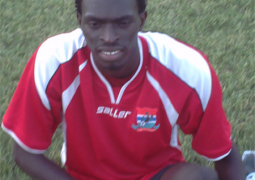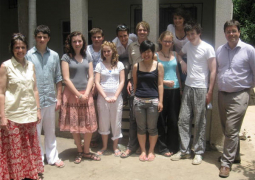Lawyers representing Ibrahim Bun Sanneh, the ex-Executive Director of the National Drug Enforcement Agency (NDEA) and his co-accused, have urged the trial judge, Justice Emmanuel Amadi, to discharge the accused persons until such a time that the prosecution would be ready to proceed with prosecuting the accused persons.
This development arose at yesterday's court sitting at the high court in Banjul, when the case was called as the state prosecutors nor the witnesses were in court, even though the accused persons and their counsel were all present.
The case was then stood down for a few minutes, after which Ebrima Jah, the state counsel entered the courtroom, and announced that he was representing the state.
State counsel Jah applied for him to talk to the bench, but the trial judge insisted that he must talk to the court.
He then applied for an adjournment in all the criminal cases before Justice Amadi.
This prompted objections from defence counsel for all the accused persons.
Lawyer Kebba Sanyang, representing the 1st and 3rd accused persons objected to an adjournment, adducing further that any delay affects the accused persons to a fair and speedy trial, as guaranteed by the 1997 Gambian constitution.
Counsel Sanyang said the court should remember that all the accused persons were remanded in custody since the beginning of the trial.
"We as counsel applied for bail, on behalf of our clients and the bail application was dismissed, even though the offences the accused persons were charged with are bailable.
"It's my submission that any further delay in this case is tantamount to an infringement on the rights of the accused persons," he further submitted.
Lawyer Sanyang then cited Section 19 of the constitution, which he read in court, and said it should be respected by all organs of government and enforceable by the court.
"We are submitting that the application for an adjournment violates the rights of the accused persons, and we are urging the court to discharge the accused persons. Whenever the prosecution is ready, they can charge and prosecute them," counsel told the court.
Defence counsel PC Secka also submitted that the prosecution lacks seriousness in prosecuting this case, and is causing delay and setbacks in the entire proceedings.
He told the court that both parties in the case should know the reason(s) for an adjournment.
PC Secka added that granting an adjournment should be based on two conditions. Firstly, he said, the reason for any adjournment should be known to the court. Secondly, the duration of an adjournment should also be known to court.
He urged the court to release the accused persons on bail with terms and conditions, until the prosecution is willing and ready to prosecute them.
Counsel said that when the prosecution demonstrates its willingness, seriousness and ability to prosecute, then they could proceed. He further stated that the delay is causing great injustice on the side of the accused persons.
"The accused persons are all Gambians, and the offences they stand charged with are bailable offences. They also hold high positions in The Gambia and, in this special circumstances, the court can release the accused persons on bail,” defence counsel PC Secka added.
Lawyer LK Mboge, representing the 5th accused also opposed to the application for an adjournment, citing relevant sections of the Gambian constitution which guarantee the right to liberty.
After listening to the submissions by members of the defence team, Justice Amadi urged state counsel Jah to find out from the DPP and the Attorney-General the reason(s) why they were not in court. He also reminded the prosecution of the nature and seriousness of the offences, adding that he wants progress in this case.
The trial judge subsequently adjourned the case to 24th June 2010 at 1 pm.
Bun Sanneh and his co-accused persons, all of whom have pleaded not guilty, are facing trial under a 30-count charge.
The counts include conspiracy to commit felony, stealing by person in public service, aiding and abetting, unlawfully possession of firearm, unlawfully possession of live ammunitions, concealment and destroying of evidence, official corruption, abuse of office, committing economic crimes, obtaining money by false pretence, making document without authority and forgery.
Read Other Articles In Article (Archive)
NAAFO establishes National Fish Landing Sites Taskforce
Dec 29, 2010, 11:55 AM




